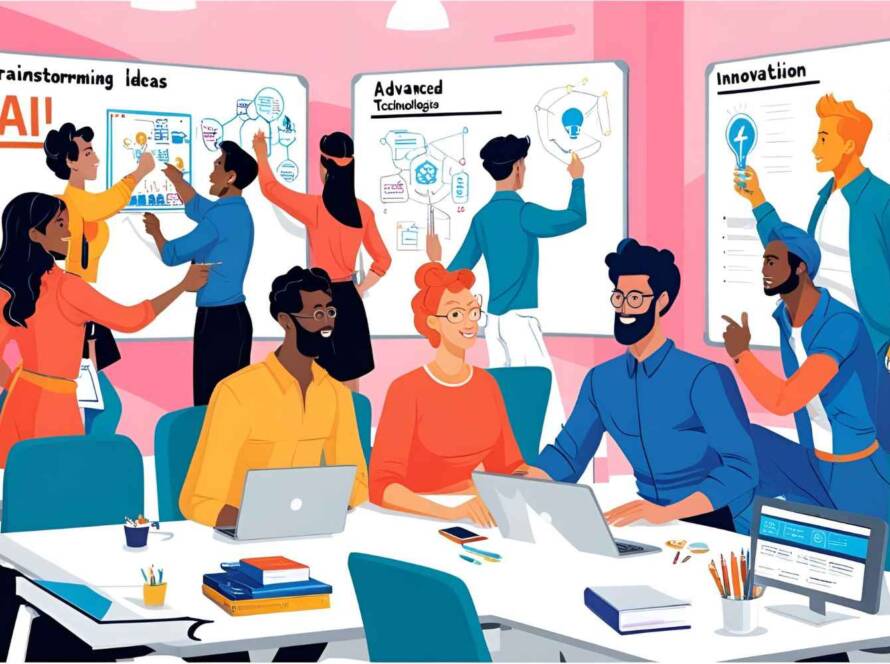Introduction
Artificial Intelligence is redefining what work means. The coming years will see a profound transformation in the UK workforce, as humans and AI agents collaborate in blended teams that emphasise creativity, critical thinking, and oversight rather than manual execution.
This AI-enabled future of work will reward organisations that invest early in skills, culture, and leadership capable of navigating the agentic era.
The Hybrid Workforce Explained
In agentic organisations, humans move “above the loop” — supervising intelligent systems that perform execution tasks autonomously.
Three key human profiles are emerging:
- M-shaped Supervisors: Generalists fluent in technology and business who coordinate hybrid teams of humans and AI.
- T-shaped Experts: Deep specialists who fine-tune algorithms, manage exceptions, and uphold quality.
- AI-Augmented Frontline Workers: Employees in service, sales, or logistics who leverage AI insights to enhance human connection and decision-making.
Why Upskilling Matters in the UK
Research by the Department for Science, Innovation and Technology (DSIT) indicates that AI could add £400 billion to the UK economy by 2030 — but only if workers are retrained effectively. Yet fewer than half of British employees have received AI-related training.
Investing in reskilling and digital literacy helps organisations:
- Boost productivity and reduce recruitment costs.
- Strengthen employee engagement and retention.
- Build trust and transparency in AI decision-making.
Culture as the Ethical Compass
Technology adoption without cultural alignment fails quickly. A strong culture:
- Encourages continuous learning and experimentation.
- Embeds ethical use of AI into daily work.
- Reinforces inclusion by ensuring that automation benefits all employees.
Forward-thinking UK firms are already implementing internal “AI academies” and peer-to-peer mentoring programmes to ensure that workers remain empowered, not displaced.
Preparing for Tomorrow’s Jobs
Businesses should:
- Conduct a skills gap analysis to identify which capabilities must evolve.
- Launch AI literacy programmes for all staff, not just IT teams.
- Establish hybrid leadership roles that combine technology, ethics, and people management.
- Partner with educational institutions and training providers to scale reskilling.
Conclusion
The future of work in the UK will be defined by collaboration between people and AI agents. Organisations that foster curiosity, continuous learning, and ethical leadership will thrive in this new landscape.
Legal & Copyright Disclaimers
- General Information Only: Provided for educational purposes; not employment or legal advice.
- No Liability: Web AI Engines Ltd disclaims liability for actions taken in reliance on this article.
- Accuracy & Currency: Content may evolve as UK labour regulations and AI capabilities change.
- Third-Party References: Cited examples are illustrative only.
- Intellectual Property: © 2025 Web AI Engines Ltd. Rewritten to comply with UK copyright law and fair-dealing principles.
- Rights Reserved / Statutory Rights Unaffected.

